Live-streamed govt meetings now required by Indiana law, state records agency advises banning AI notetakers
A state law now in effect says that live transmissions have to be available for the meetings of some governing bodies. Included in the new law are: boards of county commissioners, city councils, town councils, township boards, county councils, and elected school boards, among others.
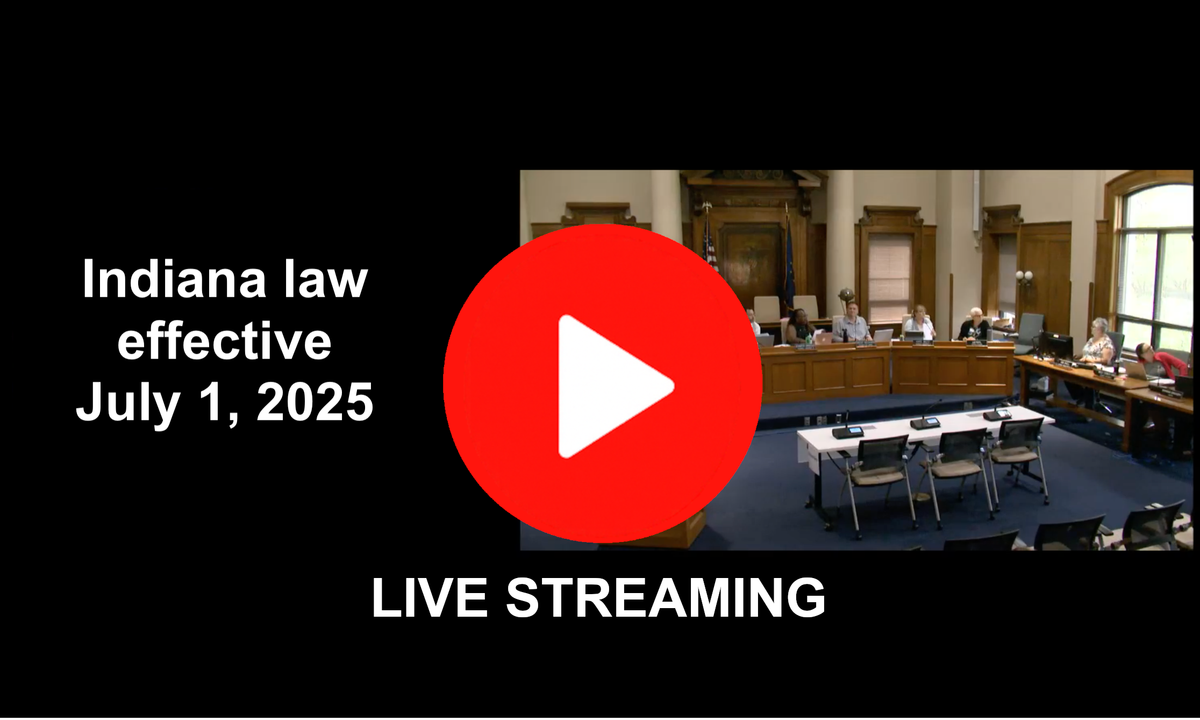
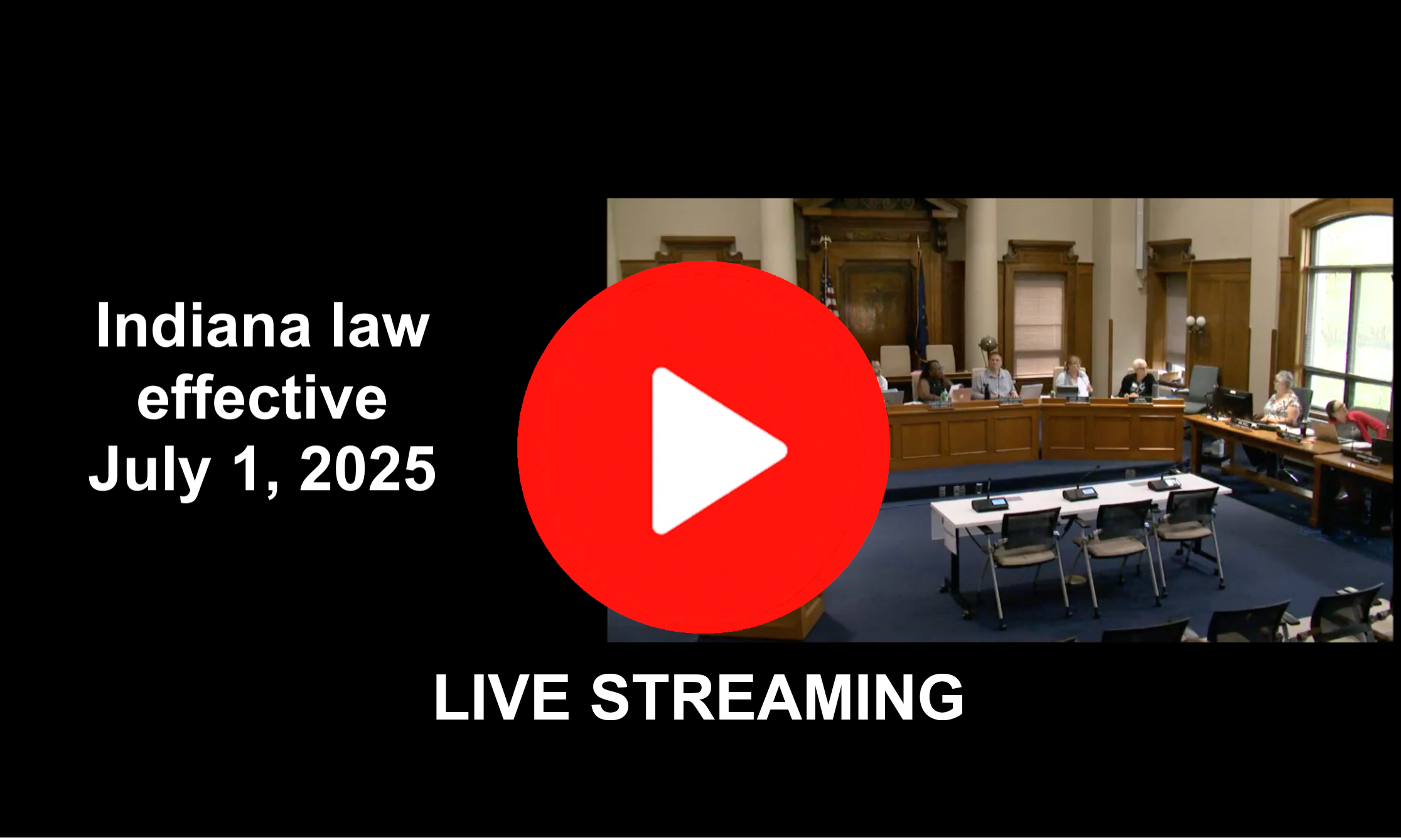
Eagle-eyed civic mavens in the Bloomington area might have noticed an addition to city council agendas in the last few months—a block of text at the end that lists the online locations where archived recordings of past meetings can be found.
The July 16 meeting agenda includes the text block. The agenda for April 16 and before do not.
The block of links reflects the requirements of a state law passed two years ago, which took effect on July 1 of this year. The new state law requires governing bodies in Indiana, like city councils, to include in its meeting notices the address of a website where archived copies of live meeting transmissions can be found.
But without live transmissions, there could be no archived copies of those transmissions. So the real crux of the new law is that live transmissions have to be available for the meetings of some governing bodies.
It’s only some public bodies that are affected: boards of county commissioners, city councils, town councils, township boards, county councils, and elected school boards, among others.
Not impacted explicitly in the law would be plan commissions. But both the Bloomington and Monroe County plan commissions are subject to the requirement that they provide live transmissions. That’s because they hold their meetings in the same room as a governing body that is subject to the requirement of live transmissions.
Bloomington’s plan commission meets in the city council chambers. Monroe County’s plan commission meets in the Nat U. Hill Room at the county courthouse, the same room where the county commissioners and the county council meet. The state law says that if a governing body routinely meets in the same room as another body that is subject to the law, then it, too, has to provide live transmissions.
The idea of live transmissions for most local public meetings is nothing new in the Bloomington area. Ever since the 2020 COVID-19 pandemic, the practice of making meetings accessible through some kind of remote connection, that is, live-streaming, has persisted.
The city of Bloomington still uses Zoom as its preferred remote meeting platform. The Monroe County government has switched from Zoom to Microsoft Teams. The new law does not prescribe a specific platform, but the Indiana Office of Technology has recommended Microsoft Teams.
Indiana’s public access counselor has issued guidance on the new law as well, highlighting the fact that the livestreaming requirement does not remove the need to properly notice meetings, have agendas available before meetings, and to make memoranda available after the meeting, as already required by Indiana’s Open Door Law.
Guidance has also been issued by the Indiana Archives & Records Administration (IARA). The IARA’s guidance advises turning off chat functions for remote meeting platforms, to reduce the number of records that are created during a meeting: “Limit creation of records during the meeting by turning off chat, …”
The IARA has specifically advised against allowing AI-notetakers from being admitted as participants in remote government meetings (emphasis added in bold):
If an Artificial Intelligence note-taking bot joins the meeting, be sure to remove it as soon as possible. AI note-taking bots should only be used to create a record of the meeting if 1) your office turned it on and 2) your office is committed to reviewing the notes the AI bot creates for accuracy and converting them into official minutes.
It’s not clear why the IARA says that AI-notetakers should be disallowed. One possibility is a concern that admitting AI notetakers to meetings would allow for the proliferation of transcripts of the meeting, competing with the official government version. Another possibility is a concern about a security risk. A response from IARA to an emailed question from The B Square did not give a definitive answer.
Earlier this year, Harvard University implemented a ban on future use of AI notetakers, citing concerns about possible legal and data security risks. The University of Missouri has sanctioned the use of Microsoft Teams Recap, but prohibited Read.ai and Otter.ai as notetakers. According to the university, “These transcription services [Read.ai and Otter.ai] have not met IT compliance requirements and could pose privacy or security concerns.”

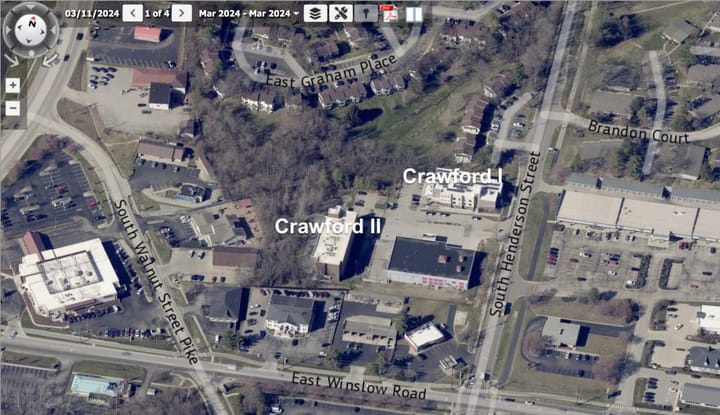
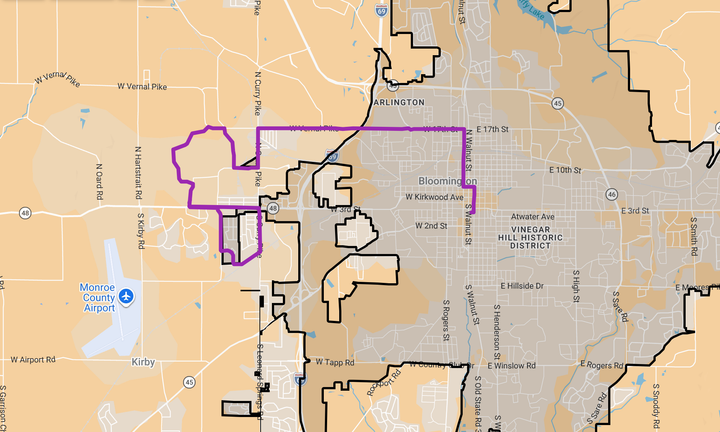
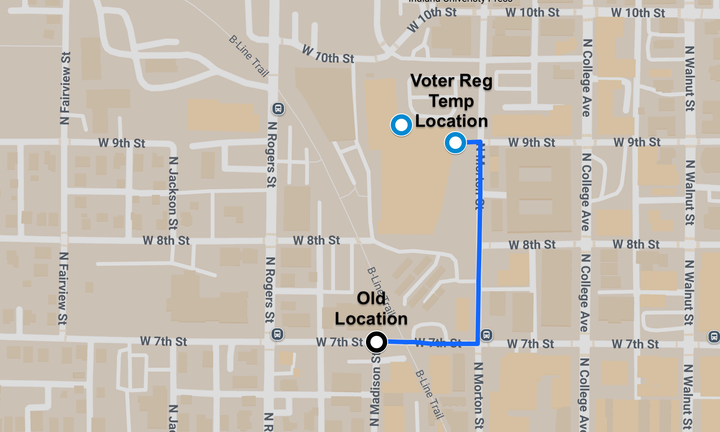
Comments ()